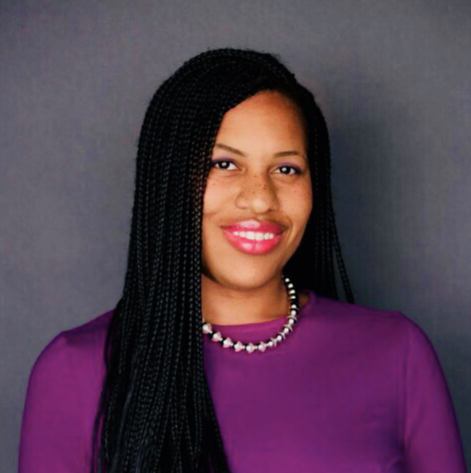It started at a Hackathon at the Sunnyside Baptist Church in South Los Angeles where Margeaux Randolph witnessed the enthusiasm children aged 5-13 years exhibited for computer based languages. Sunnyside Baptist Church had asked Margeaux to teach a class in coding. She volunteered her time offering to teach a block-based visual programming language called “Scratch.” The children eagerly gravitated to this snap-together-block language rather than the common perceived text typing coding process. Parents were also infected by this particular coding bug and told Margeaux they would love to see their children do this all day long. With Margeaux’s empathic and problem solving nature suddenly focused, she began engaging with colleagues to make this concept a reality.
Margeaux is the founder of C-Tech, the Los Angeles School of Creativity and Technology. C-Tech’s mission is to develop computer scientists with entrepreneurial skills. The school will open later this year. Students at C-Tech will participate in product-based innovation engineering labs and engage with one another in business risk and reward group processes. This is to prepare them to embrace competitive-tech industrial environments, such as robotics, virtual reality platforms, gaming, and alternative forms of music engineering. Margeaux knows that computer science is so vital to our survival in the current economy that she wants more children to have access to a technical and creative education.
Margeaux began researching how many children of color actually completed computer science programs in the state of California. She was taken back by the dismal numbers. While Margeaux and her tech industry colleagues contemplated the kind of school the community needed and what curriculum should be emphasized, California’s progressive marketplace in Los Angeles and the Bay area provided all the answers. Ideas stemming from the immediate future of automation, and the necessary labor skills required to work in those evolving industries identified specific fields. While she labored to design the curriculum around those very skills, Margeaux realized that future was already here, and now people are contemplating how it was going to negatively affect the lives of these families of color hampered by systemic racism and the usual social barriers remained a constant reminder. As ideas went back and forth between Margeaux and her collaborators, she kept hearing the future calling.
“All these families are going to be vulnerable. Automation is going to replace vehicles, truck drivers, warehousing jobs at Walmart, Amazon, and Airports. The families who are served by C-Tech will definitely be impacted, and they know this, so they want their children to have more options,” Margeaux explained.
Margeaux and her colleagues have created a curriculum based on Computer Science instruction with hands on interaction.
“We began with transitional kindergarten through 8th grade classes, where foundational coding instruction transitions into game and virtual reality programming taught by volunteer instructors and faculty. By seventh and eighth grade that knowledge merges into music engineering, robotics and entrepreneurship,” she said.
In working with local South LA children in the hackathons, parents noticed something. Children who were labeled with behavior problems did not have them while working through the tech curriculum.
Margeaux plans to expand C-Tech into high school grades. But the immediate goal is to continue to inspire and educate children so that they have the tools needed to be competitive in technology and mathematics. She was recently awarded the Education Leaders of Color (EdLoC) Boulder Fund grant for her work in creating C-Tech. The Boulder Fund is a multi-million dollar grant program created to support the innovations of leaders of color in education.
Born in Los Angeles and raised in New Orleans, Margeaux is a second-gen technology geek. Her electrical engineering father taught her and her brother how to build a working computer for less than $150 from a variety of sources. This technical fascination moved Margeaux and her brother towards advanced mathematics. When Margeaux exceeded the mathematical programs offered locally in her parish high school(s) in Louisiana, her mother managed to get her and her brother into a magnet school that emphasized learning creativity. She was able to complete the advanced algebra curriculum in four months. A door was open for Margeaux to continue her advanced mathematical studies on an online advanced mathematics program at Stanford University. She was just fifteen years old.
Margeaux’s successful experience opened the doors wide to prestigious institutions of higher education. She attended Massachusetts Institute of Technology (MIT) for her undergraduate study earning a bachelor of science degree in geographic information systems (GIS), and she followed up earning a master’s degree in public affairs from the University of Southern California.
Adriana Maestas
She has worked in the non-profit sector, in the K-12 system, and in higher education in various capacities. When she's not writing stories or working on media projects, Adriana trains instructors to teach online at the University of California, Irvine.
She holds a bachelor’s degree in political science from the University of California, Irvine and a master’s degree in public policy from Claremont Graduate University.
Latest posts by Adriana Maestas (see all)
- The Coronavirus Pandemic Poses Unique Problems for Latinx Communities - March 24, 2020
- 25 Chicas de Preparatoria se Graduan Del Instituto de Verano para Negocios y Liderazgo en Los Ángeles - July 24, 2019
- 25 High School Girls Graduate From Summer Institute for Business and Leadership in Los Angeles - July 22, 2019
- Margeaux Randolph Ofrece Educación Técnica a Estudiantes en el Sur de Los Ángeles - April 4, 2019
- Margeaux Randolph Brings Tech Education to Students in South LA - March 29, 2019

